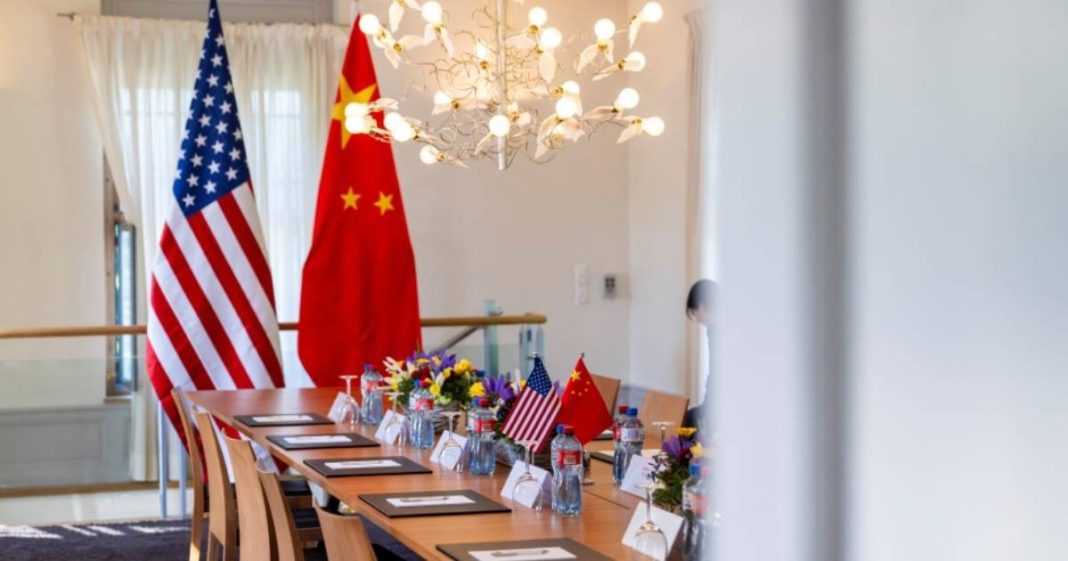The United States has taken a significant step to strengthen its internet security by proposing new rules that block companies from using Chinese technology in undersea cables and communication systems connecting the country to the rest of the world.
Growing Alarm Over Foreign Threats to Global Internet Infrastructure
The Federal Communications Commission (FCC), the agency responsible for regulating communication systems in the U.S., confirmed that it is taking steps to stop companies from using Chinese-made equipment in these critical undersea cable networks.
Undersea cables are a vital part of global communications. These cables, laid deep beneath the oceans, carry about 99% of the world’s internet traffic. They allow people across continents to exchange data, make video calls, stream videos, and transfer information instantly. However, concerns are growing that foreign countries, especially China, may be using these systems to spy on data or disrupt services.
The FCC stated that the U.S. has witnessed increasing threats to these cable systems from foreign sources. As a result, the commission plans to adopt new regulations that will prevent companies from linking any undersea cables to the U.S. if those cables involve Chinese technology or suppliers. Officials are taking these actions to protect the country from what they describe as cyber and physical threats that could arise from foreign ownership or interference.
China’s sub-sea superweapon: The $69M threat to underwater data cables
They expect the new rules to target not just ownership, but also access to cable systems—including who installs and maintains the equipment and who manages the data traffic flowing through these international lines.
U.S. Scrutiny of Chinese Tech in Undersea Cables Since 2020
The move to tighten control over undersea cable technology is not new. Since 2020, U.S. regulators have been closely monitoring proposals for new cable projects, especially those involving Hong Kong or mainland China. In the past few years, at least four cable projects were cancelled after regulators raised national security concerns.
This scrutiny intensified in 2023 when the FCC began reviewing existing rules regarding the security of undersea internet cables. The agency started exploring whether it should fully bar companies already identified as national security threats—such as Huawei, ZTE, China Telecom, and China Mobile—from participating in undersea cable operations that affect the U.S.
Taiwan Captures China-Crewed Ship After Suspicious Undersea Cable Cut
The U.S. had already flagged these companies for security risks in other sectors, such as mobile networks and 5G services. Now, officials are applying the same concerns to underwater networks that carry massive amounts of sensitive data between countries.
The FCC is actively working to prevent companies from using hardware or software supplied by these firms. It is also considering broader actions to strengthen overall cable security, including gathering public feedback on additional steps to block foreign threats.
Real-World Cases Expose the Fragility of Undersea Cables
Recent global incidents have increased concerns over the safety of undersea telecommunications cables. In one case, someone cut two major fiber-optic cables in the Baltic Sea, triggering investigations into whether sabotage had occurred. Although officials did not officially confirm the cause of the damage, the event raised serious questions about the physical safety of global data infrastructure.
In 2023, Taiwan accused two Chinese ships of cutting the only two internet cables serving the Matsu Islands, which are located near mainland China. The cable cuts left residents with no reliable internet access, showing just how vulnerable these systems can be.
A similar incident occurred in the Red Sea, where attacks by the Houthi rebel group were believed to have damaged three key undersea cables that connected Europe and Asia. These cables played a major role in providing fast and stable internet services to millions of users across multiple countries.
Hidden Sabotage: When Undersea Cables Become Geopolitical Targets
Such events highlight the importance of securing these underwater systems, not just from spying or hacking, but also from physical tampering or accidental damage. In many cases, fixing a broken cable can take weeks or even months, causing widespread disruptions to internet services.
As of now, the FCC has not finalized the new rules, but it has confirmed that the plan is to ensure foreign adversaries cannot gain ownership or access to critical submarine cables. These steps are being described as essential for protecting the integrity and security of America’s internet infrastructure.
